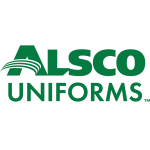Wearing a face mask can help individuals feel protected and reassured that they are doing the best they can for their health. There are many different kinds of face masks available, all of which have a different ‘correct’ way to be worn, and different levels of protection. The recent COVID-19 pandemic has seen people get creative with creating their own masks, turning household items such as plastic water bottles into face masks, but should you wear a mask?
The World Health Organisation (WHO) recommends using masks only if you:
- Have a fever, cough, or other respiratory symptoms
- Are personally healthy but need to wear a mask if you’re caring for someone with a respiratory illness.
Masks are only effective when used in combination with frequent hand washing either with soap and water or an alcohol based hand rub.
So what is the best mask to protect your health?
The three most common face masks available are:
- Surgical mask
- N95 respirator
- Homemade cloth mask
Surgical Masks
The most common mask, Surgical Masks, are designed to be disposable and loose fitting but still covering your nose, mouth and chin. Although designs vary, most are a rectangular shaped with a metal strip to form around the bridge of your nose and elastic bands (to be locked behind your ears) or ties (to be tied behind your head).
Surgical masks need to be worn correctly for them to be effective. Instructions on how to correctly put masks on can be found here. A properly worn mask may help block transmission of large-particle microorganisms from droplets, sprays, splatters, and splashes while also reducing hand to face contact.
N95 Respirator
These masks are more form fitting and tighter than surgical face masks. N95 masks protect you similarly to surgical masks however, N95 masks can also filter out 95% of very small particles, including virus and bacteria. Some types may include an exhalation valve, which can help breathing and the buildup of heat and humidity.
Designed to form a tight seal, with elastic bands holding it firmly to your face, N95 respirators are the chosen mask for many health professionals. However, these masks aren’t one size fits all. In order for the mask to be effective, it must be ‘fit tested’ to make sure a proper seal is formed. It is harder to achieve a tight seal in some individuals, especially children and those with facial hair.
Homemade cloth masks
Although the least effective method out of all the masks, wearing it can still be useful in areas you’re unable to practise social distancing. These areas could include public places, e.g. the supermarket, pharmacies or public transport. Creating your own cloth or other material face masks, ensures surgical masks or N95 respirators are reserved for healthcare workers and medical first responders.
What not to do when wearing a mask
It is crucial when wearing masks, that proper steps be taken to ensure maximum safety. Avoid dangling the mask from one ear, hanging the mask around your neck or touching the mask once it’s secured on your face. Surgical and N95 masks are only designed for single use and reusing them can reduce its effectiveness/efficiency in blocking pathogens reaching your face.
Although social distancing should be practised wherever possible, face masks can still be handy to have as an added protection. Did you know that you touch your face 23 times, on average, per hour? Therefore it is still crucial to maintain good hand hygiene, which includes washing your hands thoroughly, with soap for at least 20 seconds to ensure you remain in good health.
Alsco has been helping Australians prosper since 1963. We’re one of the leading providers of linen, workwear, commercial floor mats, industrial cleaners, first and training and washroom hygiene services across Australia. Get in touch with us today, and let us take the hassle out of mundane tasks so you can focus on what you do best.

